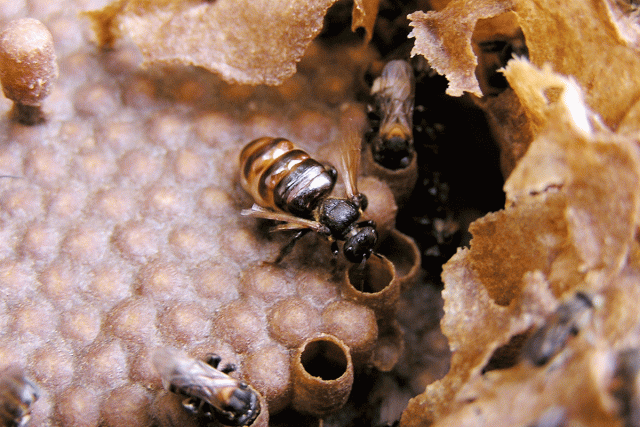MI weekly selection #152
MI weekly selection #152

Evidence of plague found in Bronze Age skeletons
DNA testing of Bronze Age skeletons has found evidence of a plague outbreak that occurred thousands of years before the Black Death that devastated Europe in the 1300s. Researchers found enough Yersinia pestis DNA in skeletons that tested positive for the bacteria to produce complete genome sequences, according to a study published in Cell. The scientists found, however, that the disease did not spread as readily as the later outbreak, likely because it lacked a gene that makes it easier for fleas to transmit it.
Fungus plays key role in health of bee larvae
Bees are providing additional food for their larvae by farming fungus, a new study published in Current Biology has found. Researchers who tried to raise bees on pollen alone discovered that the survival rate of bee larvae dropped significantly when the fungus wasn’t present. The exact role the fungus plays has yet to be determined, but the finding could have implications for agricultural use of fungicides.
Exosomes worsen sand-fly-delivered parasite infection
Sand flies deposit more than Leishmania parasites when they bite mammals, including humans. They also deliver exosomes, which exacerbate the inflammatory response and increase the number of parasites within the host, according to a study published in Cell Reports. Researchers injected mice with Leishmania parasites, some with the exosomes and some without, and discovered that the mice infected with the exosomes had larger lesions and more parasites in their bodies.
A link activity of navigational brain cells with Alzheimer’s
How a person navigates a virtual maze could indicate if they will develop Alzheimer’s disease, according to research published in Science. The activity level of a network of navigational brain cells, called grid cells, is lower in those with a higher risk of Alzheimer’s.
The molecular roots of leukemia
Using next-generation exomic sequencing, scientists identified 44 gene mutations and 11 genes with an abnormal number of copies that might play a role in chronic lymphocytic leukemia. Two of the genes with CLL-linked mutations, RPS15 and IKZF3, have not been linked with human cancer in other studies.